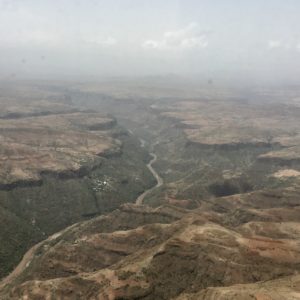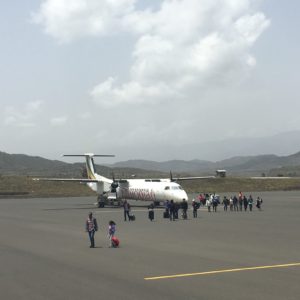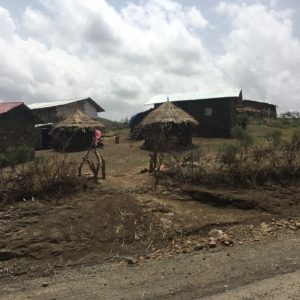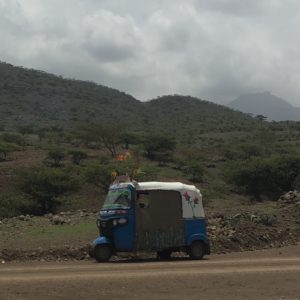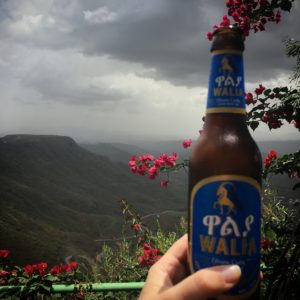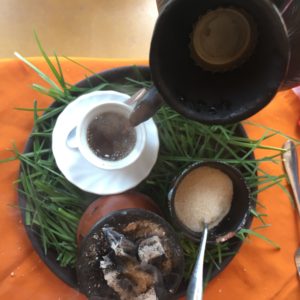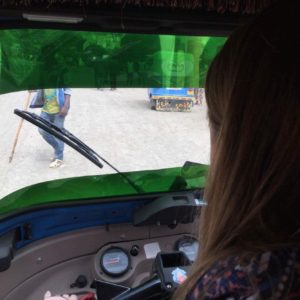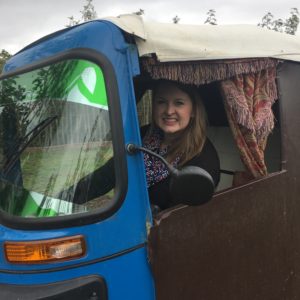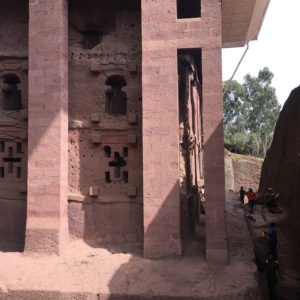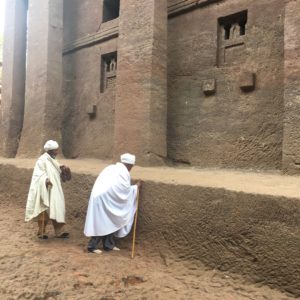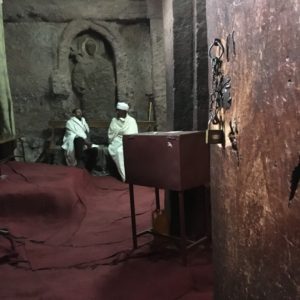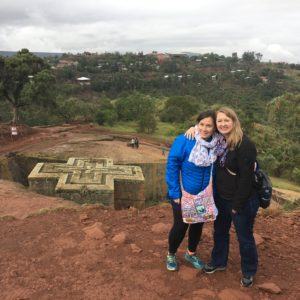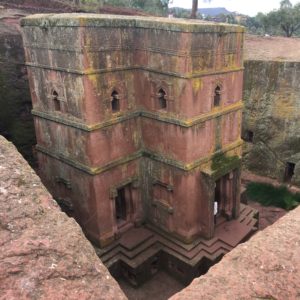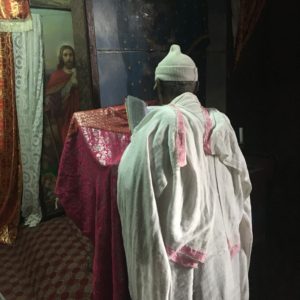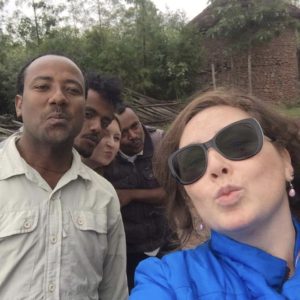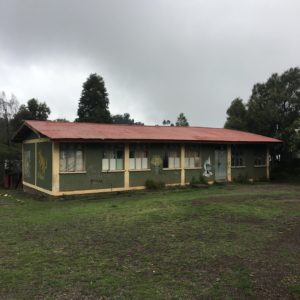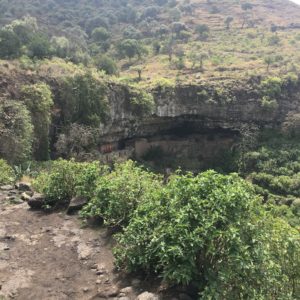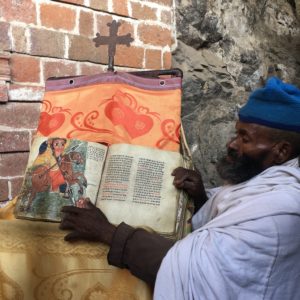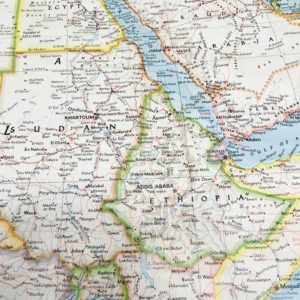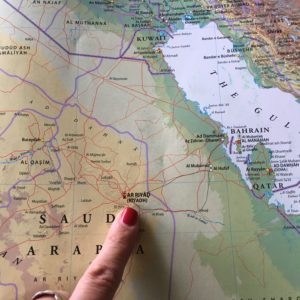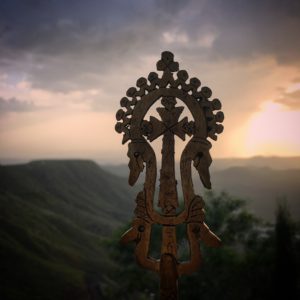 Ok, so now you know the story of how our Ethiopian adventure came about. After one extremely long and dramatic travel day we found ourselves in Addis Ababa after nearly 36+ hours of no sleep. We were beyond exhausted and literally ordered room service and fell asleep. We had an early morning flight with our favourite airline Ethiopian Air, the following morning.
Ok, so now you know the story of how our Ethiopian adventure came about. After one extremely long and dramatic travel day we found ourselves in Addis Ababa after nearly 36+ hours of no sleep. We were beyond exhausted and literally ordered room service and fell asleep. We had an early morning flight with our favourite airline Ethiopian Air, the following morning.
Bright and early the next day we caught a shuttle to the airport only to find out…..not very shockingly....that our flight was delayed a couple hours. This was a little annoying because we only had time for an overnight in Lalibela, and were planning to pack a lot into our time there. But these things happen and we didn’t want to get into a negative mood so we grabbed some cokes and some type of cake and people watched. Much to our delight we ran into a super cute Somali/UK family that had been on our Riyadh flight the day before. The mom was very nice and she had an older teenage daughter, and a boy who I’m guessing was like 13 and a young boy who was maybe 3. The 13 year old was the most polite child I’ve ever met. The 3 year old was naturally scared of strangers and didn’t initially take a liking to me, but eventually I wore him down and he kept trying to hold my hand like we were the best of buds. Operation befriend strangers child was successful. It’s a good thing his mom was keeping an eye on him otherwise I might’ve made off with him- he was super cute. So anyways because of our delay that morning it just so happened that we crossed paths with them which was a very nice surprise.
Our flight to Lalibela which is in the northern part of Ethiopia was uneventful (thank goodness!) We stopped off in a place called Bahir Dal which is on Lake Tana and then into Lalibela. Coming into Lalibela the countryside reminded me of the Grand Canyon. It’s rugged and colourful and there are little huts dotting the horizon. We jumped in a local shuttle to go to our hotel- the actual village is about 20min away from the airport. I watched out the window wide eyed. This after all is my first trip to Africa apart from Egypt and Morocco which are very different because they are Northern Arab Africa. We passed straw roofed huts, colourfully dressed locals, and the absolute best part for me was that they had RICKSHAWS!! Ever since driving a 3 wheeled auto rickshaw across India a few years back I’m obsessed with driving them. As soon as I saw the first one I turned to Kiwi and was like “I’m driving one of those today!” And luckily Kiwi is happy to go along with my crazy ideas so she was on board. We arrived at our hotel. There are understandably no super fancy hotels in this village but we stayed at the Maribella Hotel which was perfectly adequate and the staff were lovely. We met our guide for the rock churches who would come back and get us after we had eaten some lunch. I requested that our tour be by rickshaw, “preferably a rickshaw that I am driving.” Kassaye the guide was totally unphased by this and said “no problem.”
We had a delicious Ethiopian lunch and I had a couple local Walia beers which were very tasty and we started to climb the 3 flights of stairs to our room. Part way up Kiwi says to me “I feel dizzy.” And I’m like “well take a rest then.” And I went ahead and unlocked the door to our room. Kiwi comes in and she’s leaning over her bed and again says “I feel dizzy.” And I’m like “well sit down then.” No sooner do the words come out of my mouth then I see movement out of the corner of my eye. I turn and watch her slow motion fall between the beds. My initial thought is that she’s fake fallen, but as I come around the side of the bed she’s laying in between the 2 twin beds, eyes open, not blinking, face pale and her lips are starting to turn a little blue. My mind was racing and I’m trying to figure out whether I yell for help- if anyone would actually hear me, and if there’s even a hospital in this village. I crouched down and felt her pulse which thankful she had and start shaking her and she eventually started blinking. Now a back story is that Kiwi is allergic to a wide variety of things and one of the requirements for us to take this trip was that she get an epi pen. So I’m like “Kiwi are you having an allergic reaction?” And she’s like “why is my iPad on the floor?” And I’m “like well you’re on the floor.” And she looks around and realizes that she is and she slowly sat up and we both laughed. I laughed mostly out of relief because it really was a scary thing to witness, and having to call a travel mate’s family to say that something bad happened is something I’ve always feared while traveling. But she was ok. I think it was a combination of the elevation and exhaustion so we took it slow the rest of the trip.
Once that medical emergency was out of the way we made our way downstairs to meet Kassaye. Outside to my great delight was Kassaye and a young rickshaw driver who was totally cool with me driving his rickshaw. So Kiwi got in the back with our guide and the rickshaw boy perched on the edge of the driver’s seat as he gave me a refresher of Rickshaw Driving 101 for Dummies. I stalled it the first time and then got it going and then he jumped in the back. I was smiling from ear to ear and both the guide and rickshaw boy were impressed! They said they’d never had a tourist drive a rickshaw in Lalibela before and by the end of the day we would be the talk of the town. So off we headed to the main cluster of rock churches. We drove through the main center of Lalibela and when locals got a look at me driving they would start clapping and cheering. The kids chased after the rickshaw. But the best for me was the look of surprise on the teenage girls faces that we passed. I loved seeing the excitement in their eyes. Kiwi kept saying “I can’t believe I’m being driven to a UNESCO site by kristinewanders in a rickshaw. This is the best!” And she was exactly, right. It was the absolute best.
So we arrived at the complex that holds several rock churches. Lalibela is an interesting town in that it is all Orthodox Christians. There are no other churches in the area- in fact the closest mosque is like 60km away. It is also considered to be a holy city and is a site of pilgrimage for Orthodox Christians. The churches in this region date from the 7th to 13th century and are often carved out of a solid piece of rock. There is a lot of links of Jerusalem and most of the churches have names like House of the Cross or House of Mary as examples. Our first stop that day was to visit the Northern grouping of churches which comprises 5 churches in the same complex. The Lalibela Rocks churches became a UNESCO World Heritage site back in 1978. It costs $50 US dollars a person to get into the Northern complex. To me that is pretty steep but they are very much worth being seen. There is a tiny museum on site which houses display cases with old art work and a history of the King of Lalibela and examples of the metal crosses the region is known for.
As we were checking out the museum a religious ceremony was finishing up so there were priests and other worshippers dressed in traditional clothing leaving the church complex. That made for some amazing photos. Over the next couple hours we visited several of the churches. They are carved out of a single piece of rock and each one is different from the others. Some of them the insides are bare, others like St Mary’s has the remnants of fresco paintings on the arches and ceiling. They have carved windows which allows for natural light to filter in. It’s amazing to think of how something like this was built with such precision. The archways are perfect. You need to wear good walking shoes though as the floors are uneven and you are climbing up and down to get to the churches. We were in Ethiopia during the rainy season so late in the afternoon it started to rain which turned the paths into mud and made it quite slippery. Luckily, the rains were short lived and we wandered the paths outside the church complex. We then got back into the rickshaw to pick up some supplies for one of the local schools. Kiwi had been in contact with the principle of the primary school there and was told that the kids needed soccer balls. She had kindly bought some nice Adidas balls in Saudi which were taken away from us in Riyadh by airport officials who said you couldn’t fly with soccer balls, but secretly we think they just wanted them for themselves. Anyways we bought 10 new soccer balls for the kids and squeezed them into the rickshaw with us. The young rickshaw owner had an old Nokia phone that had Whitney Houston’s “I will always love you” as his ringtone. Lucky for us he was quite popular so it would ring pretty often and Kiwi and I would start singing along until he answered it and we would all laugh!!
The next morning our guide Kassaye picked us up. He had been in the market the previous night and the talk of the town was of the girl who was driving the rickshaw. So now I’m basically #EthiopiaFamous for my mad driving skillz. We set off for St George’s Church. Naturally we had requested a rickshaw again so I drove us there. St George’s Church is the church you see when you when you google Ethiopia rock churches. It is beyond stunning. A perfect rock cross roofed church carved into the ground. When you first view it it appears small, but as you walk closer you can see that it’s not nearly as small as you had originally thought. I was actually speechless and pretty much just stood there feeling like all the drama to get to this place was so very much worth it. There’s a path that descends down to the base of the church and we walked around it and took photos from outside and then inside. After that we climbed back up and took selfies with Kassaye and the rickshaw owner. Kiwi even convinced them to make kissy lips which is her specialty.
We then switched vehicles and on our way to the airport we tracked down the school principle and visited the school to drop off the soccer balls. Sadly, school was out for the summer so there weren’t any kids around. Maybe this was a good thing because I likely would’ve tried to adopt/steal several of them! We toured the school- like 2000 children attend broken into morning and afternoon classes with adult education classes held in the evenings. We then drove out of town stopping on the way to visit Bet Neakutoleab a church that is built into the wall of a rock cliff. It’s a bit of a walk down a rocky path to get to it but it’s pretty cool. I got to meet one of the local priests who showed me all the treasures of the church which consisted of the typical metal crosses, incense and an old colourful handwritten bible. From here we got dropped off at the airport. The airport there is super small. Like teeny tiny. Naturally our flight was delayed almost an hour. We had each purchased a metal Lalibela cross as a souvenir and didn’t even think that they probably wouldn’t be allowed as carry on. We made sad eyes to the security guy and he said he would ask someone if an exception could be made so we could bring them on board as we didn’t want to have to check a bag. He later came back to us and said he would ask the flight attendant if she would lock them up for the flight and return them to us when we landed in Addis. Much to our delight she agreed which made me dislike Ethiopian Air a tiny bit less.
If you go to Lalibela the staff at the Maribella Hotel is really great. The local guide we used is Kassaye. He speaks great English and you can contact him via his Facebook page here.
Happy travels….
